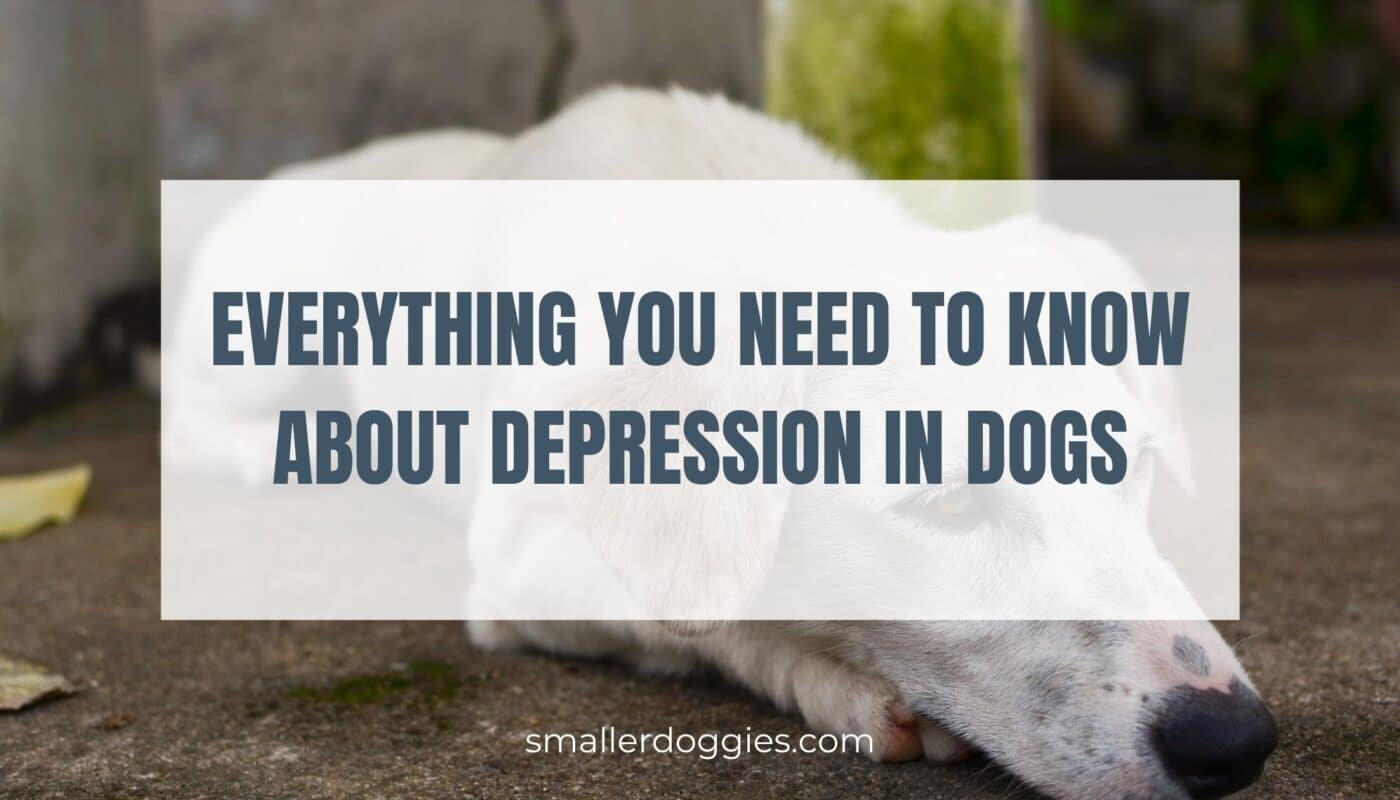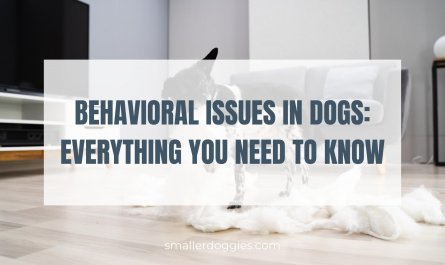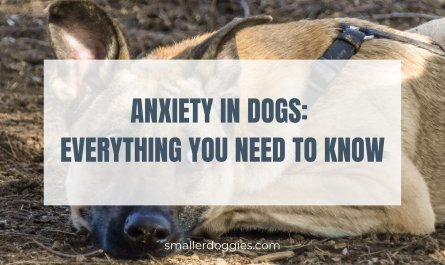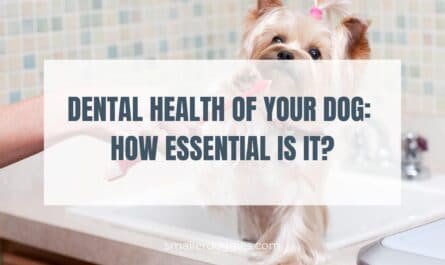Post Disclaimer
This post may contain affiliate links. If you use these links to buy something we earn a commission at no extra cost to you. Smaller Doggies is supported by its audience, Thank you!
Dogs are known as man’s best friend for a reason. They are loyal, loving, and always there to make us laugh when we need it. But did you know that dogs can experience depression just like people? If your dog seems to be acting out of character or is withdrawn for no apparent reason, it might be time to have them checked out by the vet for depression. This post will discuss the signs and symptoms of depression in dogs, how to treat it, and what you can do to help your furry friend feel better. So please keep reading!
What causes depression in dogs?
Several things can trigger depression in dogs:
- The death of a loved one, whether it be another pet or a family member
- A move to a new home or changes in the family dynamic can also be tough on dogs and lead to them feeling down.
- Dogs that don’t get enough exercise
- Not enough social interaction
- Also, some dog owners might often experience depression in dogs after surgery
Symptoms of depression
Dogs can vary depending on the individual dog. Some may experience all of the symptoms, while others may only have a few.
- The most common symptom of depression in dogs is a change in eating habits. This can manifest as either a decrease or an increase in appetite. Some dogs may stop eating altogether, which can lead to weight loss. Others may start eating more than usual and begin to gain weight.
- A change in sleeping habits is another common symptom of depression. Dogs that are depressed may start sleeping more than usual or in unusual places. They may also become restless and have trouble sleeping through the night.
- Loss of interest in activities is another common symptom of depression in dogs. If your dog used to love going on walks but has stopped wanting to go outside, it could be a sign that they are depressed. Some dogs may also act out by destroying things or have difficulty focusing on training.
- Finally, depression in dogs can lead to changes in behavior. Your dog may experience a sudden loss of interest in being around other people and animals, become aggressive towards those they previously loved, or start to vocalize more.
How is depression diagnosed in dogs?
If you think your dog may be depressed, the first step is to talk to your veterinarian. They will ask about your dog’s symptoms and medical history and perform a physical examination. Your vet may also recommend some blood tests to rule out any other potential causes of the symptoms. If no underlying health condition is found, your dog may be diagnosed with depression.
How is depression treated in dogs?
The treatment for depression in dogs will vary depending on the severity of the condition and the underlying cause. In some cases, simply increasing exercise and providing more social interaction may be enough to help your dog feel better. For more severe cases, your vet may recommend medication or behavior therapy.
What can you do to help your dog?
If you suspect your dog may be depressed, take your dog to the vet to get adequately assessed. While the underlying cause of your dog’s depression may not be something you can fix, however, there are things you can do to help them feel better at home:
For starters, make sure they get plenty of exercises every day. Take them on walks or play with them in the yard. Spending time with other people and animals is also essential to help boost their mood.
You may also consider trying some calming supplements, such as hemp oil or melatonin to help your dog relax. Just make sure you talk to your vet before starting any new treatment.
In addition, please do your best to keep their schedule as normal as possible. This might mean limiting visitors if they tend to get overwhelmed or avoiding significant changes like moving houses.
Finally, spend plenty of time giving your dog attention and affection. They need to know they are loved and that you are there for them.
Frequently Asked Questions
How do I know if my dog would like a companion?
If your dog is used to being around people and other animals, they will likely enjoy the company of another dog. However, if they are more independent or prefer to be alone, a second dog may not be the best idea. It’s important to consider what your dog is used to and how they would likely react to a new companion.
Do dogs get sad sleeping alone?
Yes, dogs can get sad or depressed if they cannot spend time with their owners each day. This could be due to work obligations or simply a lack of time spent together each day. Dogs that sleep alone for extended periods may also experience feelings of anxiety, loneliness, or sadness.
Can dogs get depressed not walking?
Yes, dogs can get depressed if they cannot go on walks or get regular exercise. This may be due to a health condition that prevents them from being active, or it could be caused by other factors such as a lack of interest in getting outdoors. To help your dog feel better, make sure they get plenty of exercises.
If you think your dog may be depressed, it’s essential to take them to the vet for an evaluation. The vet will be able to rule out any medical causes for the symptoms and give you a better idea of how to treat the depression. Treatment may include increased exercise and social interaction, medication, or behavior therapy. Whatever you do, spend plenty of time with your dog, providing them with affection and attention to help boost their mood.
What are your views on this? Share in the comments bar below.







